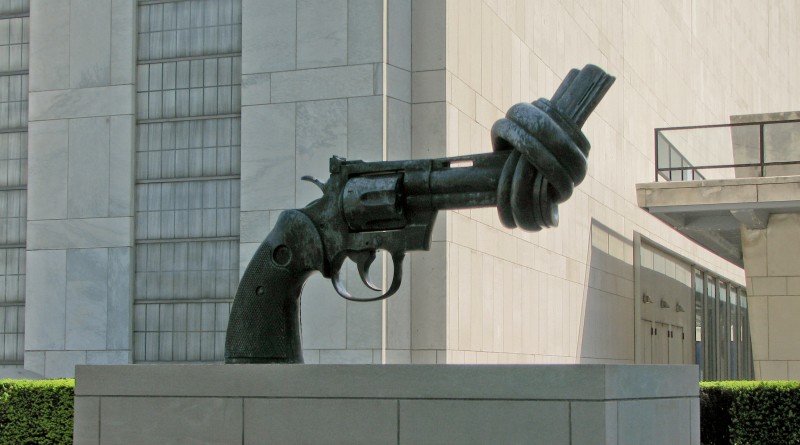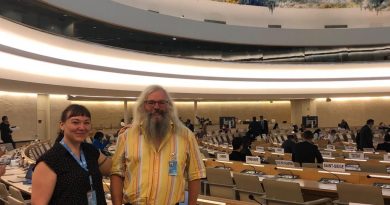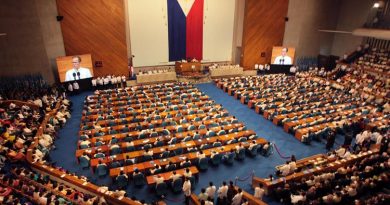CGNK addresses the 59th Session of the UN Commission on the Status of Women
The Center for Global Nonkilling, in its capacity of non-governmental organization in special consultative status with the United Nations Economic and Social Council, submitted a formal written statement to the United Nations addressing the 59th Session of the Commission on the Status of Women (CSW59), to be held from 9 to 20 March 2015 at the United Nations Headquarters in New York.
The main focus of the session will be on the Beijing Declaration and Platform for Action, including current challenges that affect its implementation and the achievement of gender equality and the empowerment of women, including the key areas of concern regarding violence against women and women and armed conflict. The Commission will undertake a review of progress made in the implementation of the Beijing Declaration and Platform for Action, 20 years after its adoption at the Fourth World Conference on Women in 1995. The review (Beijing+20) will also include the outcomes of the 23rd special session of the General Assembly, the first five-year assessment conducted after the adoption of the Platform for Action, which highlighted further actions and initiatives.
The English, French, Russian, Spanish, Arabic and Chinese versions of the statement can be downloaded here or from the official UN documentation site under reference number E/CN.6/2015/NGO/21.
Statement for 59th Session of the Commission on the Status of Women (CSW59)
2015 brings the convergence of the 20-year anniversary of the Beijing Declaration and Platform for Action and the conclusion of the Millennium Development Goals initial period of action. Both documents have been important benchmarks against which to measure the successes and shortcomings of an increasing struggle to tackle violence against women.
Following the Declaration on the Elimination of Violence against Women (A/RES/48/104) adopted by the General Assembly during its 85th plenary meeting, that highlighted women’s “right to life” (Art. 3), the Beijing Declaration and Platform for Action reaffirmed the signatories’ determination to “Prevent and eliminate all forms of violence against women and girls”, providing transversal attention to this problem throughout the Platform for Action, with special attention in the areas of concern regarding “Violence against Women” and “Women and Armed Conflict”. The time is ripe for a detailed and careful analysis of the progress toward achieving the strategic objectives in both areas through the implementation of the actions then described and others since suggested.
The Center for Global Nonkilling, a participant of the World Health Organization’s Violence Prevention Alliance as well as an NGO in special consultative status, acknowledges that lethal violence against women is the tip of the iceberg both considering violence as a whole and lethal violence in itself. Although young men represent by far the largest percentage of victims and perpetrators of lethal interpersonal violence, new data reveals that women, girls and children are subject to high levels of non-fatal violence that frequently remain under the radar for official records. Women suffer disproportionally from sexual and intimate-partner violence affecting their sexual and reproductive health, as well as the health of their children and families.
The 2002 World Health Organization World Report on Violence and Health and the 2014 follow-up Global Status Report on Violence Prevention provide reliable data on the global burden of violence that can assist the United Nations Commission on the Status of Women in evaluating the actual numbers and trends regarding violence against women, particularly in terms of deaths from homicide, suicide and armed conflict. Significantly, both publications present violence as a ‘preventable disease’ emphasizing different prevention strategies and recommendations that have been shown to work. The CSW will find additional support for multisectoral action in the 2014 resolution of the 67th World Health Assembly on “Strengthening the role of the health system in addressing violence, in particular against women and girls, and against children” (WHA67.15).
This same World Health Assembly’s resolution urges member states to take steps to end the social acceptability and tolerance of all forms of violence, in particular against women and girls, and children. Building up from the social-ecological model that characterizes the public health approach to violence prevention, the resolution points out “that preventing interpersonal violence against children – boys and girls – can contribute significantly to preventing interpersonal violence against women and girls and children, that being abused and neglected during infancy and childhood makes it more likely that people will grow up to perpetrate violence against women, maltreat their own children, and engage in youth violence”, effectively halting the intergenerational perpetuation of interpersonal violence.
The Center for Global Nonkilling joins the World Health Organization and many other organizations in affirming that we currently know enough to drastically reduce violence, particularly potentially lethal violence against women, girls and children. The confluence of the reviewing of the Beijing Declaration and Platform for Action (Beijing+20) and the definition of the post-2015 development agenda is the appropriate moment to highlight the need to take violence prevention seriously, building and expanding the necessary social, political and institutional momentum to expand and put our existing knowledge and evidence-backed violence prevention policies, programs and strategies into practice, opening an opportunity for building safe killing-free communities around the world.
We thus invite the CSW to reinstate the importance of the prevention and elimination of all forms of violence against women and girls as a key area of concern of the Beijing Declaration and Platform for Action and to use its good offices to call for the incorporation of women’s right not to be killed and the right not to kill, in the form of goals for the prevention and reduction of lethal and other forms of violence against women, as part of the post-2015 development agenda. As the post-2015 framework will be crucial to determine the global approach of some of the most pressing problems of our time, it represents a unique opportunity to include the prevention and reduction of violence against women as a key measurable factor to achieving development goals and the the Beijing Declaration and Platform for Action strategic objectives.
Seconding Article 3(a) of the Declaration on the Elimination of Violence against Women (A/RES/48/104) and the call of the late Assistant Secretary-General and first Chancellor of the UN-mandated University for Peace Robert Muller “to place the right of each human person not to kill and not to be killed at the top of the list” (1982), including the prevention and reduction of lethal violence against women in the a post-2015 development agenda and the measurable data on violent deaths as an indicator of its achievement will be a significant step toward the recognition of the human right to life.




